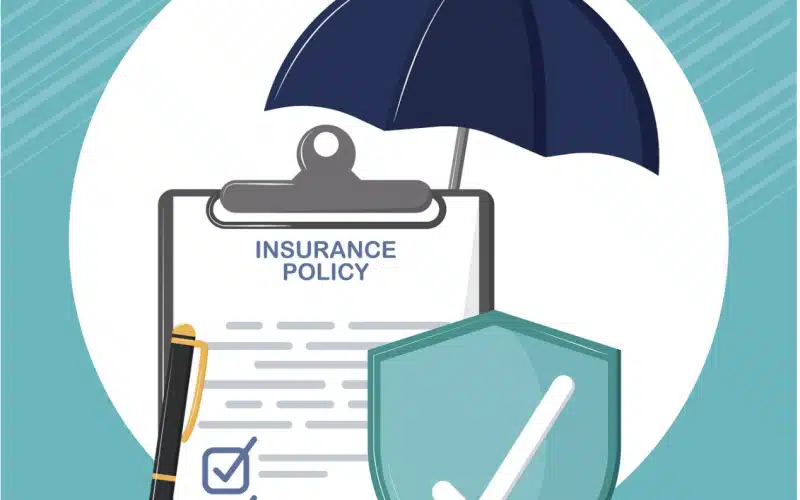Business insurance is a contract between the business owner and the insurance company, where the insurance company agrees to compensate the business for covered losses in exchange for premium payments. But how much does business insurance cost?
There are many types of business insurance policies, which include coverage for legal liability, property damage, employee-related risks, and many others. Companies evaluate their commercial insurance needs based on potential risks, which can vary depending on the type of business and its environment.
A business owner’s policy (BOP) is the most common insurance product for small businesses, according to the Insurance Information Institute (III). It typically includes three basic types of coverage to help protect a business: business property coverage, general liability coverage, and business interruption coverage.
If you are a small business owner, you may also be able to buy additional insurance coverages to customize your policy based on your business’s specific needs. These additional coverages may include commercial auto coverage, errors and omissions coverage, key employee coverage, and more.
Types of business insurance
Liability Insurance
Liability insurance protects businesses from legal claims and financial losses resulting from third-party injuries, property damage, or lawsuits. It covers legal defense costs, settlements, or judgments if the business is found legally liable for causing harm or injury to others.
Liability insurance is crucial for businesses that interact with customers, clients, or the public and helps protect their financial interests in case of accidents, injuries, or property damage claims.
Types of insurance under liability insurance include:
- General liability insurance: Also known as business or commercial liability insurance, this essentially covers various claims. This includes bodily injury, property damage, personal or advertising injury, medical payments, products-completed operations, and damages to premises rented to you.
- Professional liability insurance: Also known as errors and omissions (E&O) insurance, protects businesses that offer professional services. B2C businesses often use E&O coverage to protect against claims stating their services caused clients financial distress or bodily injury.
- Contractors’ professional liability insurance: If your business is in the design-build or construction management industry, you need to purchase some form of contractors’ professional liability insurance. This coverage protects professionals against construction errors or losses incurred when designing, engineering and constructing a building.
- Management liability insurance: This is a combination of coverages used to protect private, public and nonprofit companies from various board-level exposures. It protects against the risks of managing a business and is purchased by organizations with a board of directors.
- Employment Practices Liability Insurance (EPLI): This insurance type protects you if an employee files a claim against you for wrongful discipline or termination, sexual harassment, discrimination, negligent evaluation, breach of employment contract, mismanagement of employee benefits, or wrongful infliction of emotional distress.
- Business Owners Policy (BOP): If you want general liability insurance and property coverage, you can package them together in a business owner’s insurance policy. A BOP provides liability coverage for customer injury, property damage, and product-related claims, in addition to commercial building and movable property coverage.
- Product liability insurance: This provides more protection and security than a standard product warranty or guarantee. This coverage protects your business if a product causes damage or injury to a third party, or if your business faces a product-related lawsuit.
Property Insurance
Property insurance covers the physical assets of a business, including buildings, equipment, inventory, and other tangible property. It provides compensation for losses due to events like fire, theft, vandalism, or natural disasters.
Property insurance helps businesses recover and repair or replace damaged or stolen property, minimizing the financial impact of such events. The type of coverage you need will depend on the property you own or rent.
Types of insurance under property insurance include:
- Commercial property insurance: Commercial property insurance protects your physical assets (building, equipment, inventory, tools, furniture and personal property) and covers financial losses due to property damage from fire, theft or loss.
- Business renters insurance: This type of insurance covers many things that the other policies also cover, but is for rented spaces specifically. It is essential for businesses operating in one or more rented spaces. It will cover incidents within the space, including fire, floods, accidents, and building or property damage due to natural disasters.
- Personal auto insurance: If you are self-employed and drive your personal vehicle for business purposes, you may be covered under your personal automobile insurance. If you own your car, truck or van and only use it occasionally for work, you may be able to skate by with standard personal auto insurance designated for business use.
- Homeowners’ insurance: Homeowners insurance often only provides limited coverage (e.g., $2,500) for business property or equipment stored in your home, and some policies don’t cover business property at all.
- Commercial auto insurance: Commercial auto insurance provides coverage for vehicles used for business purposes. It includes liability coverage for third-party injuries or property damage, as well as coverage for damage to the insured vehicle.
Workers’ Compensation Insurance
Workers’ compensation insurance provides coverage for employees who suffer work-related injuries or illnesses. It covers medical expenses, disability benefits, and lost wages for employees who are injured or become ill while performing their job duties.
Workers’ compensation insurance is typically required by law and helps protect businesses from potential lawsuits by employees seeking compensation for work-related injuries or illnesses. If an employee accepts the benefits of workers’ comp, they relinquish their ability to sue your company for the illness or injury.
Types of insurance under this include:
- Life insurance: You and any other members of your business can acquire a life insurance policy. This is similar to key person insurance, providing a beneficiary with financial assistance in the event of your death. Having life insurance in place can give you peace of mind that your death will not burden your family or business partners financially.
- Disability income insurance: Disability insurance and workers’ comp are similar in that they temporarily cover an employee’s lost wages if they are unable to work because of a disability. However, disability insurance will cover injuries or illnesses that occurred on or off the job, whereas workers’ comp only covers work-related issues.
- Key person insurance: Key person insurance, also known as key man insurance or key woman insurance, helps replace lost revenue due to the death of a key executive of your business. Your business pays the premium while the key person is alive and then collects a death benefit after their passing.
Cyber insurance
Cyber insurance protects businesses against losses and liabilities arising from cyber threats and data breaches. It provides coverage for expenses related to data breaches, including legal costs, customer notification, credit monitoring, and reputation management.
Cyber insurance helps businesses manage the financial and legal risks associated with data breaches, cyber-attacks, and other cyber incidents.
How does business insurance work?
Business insurance works by transferring the financial risks faced by a business to an insurance company. The business owner pays regular premiums to the insurance company based on the coverage and policy terms. In return, the insurance company agrees to provide financial compensation or coverage for specific events or losses outlined in the policy.
When a covered event occurs, such as theft, property damage, or a liability claim, the business owner files a claim with the insurance company. The insurance company assesses the claim and, if approved, provides the agreed-upon compensation or coverage as per the policy terms.
Business insurance operates on the principle of spreading the risk among a large number of policyholders. This allows each business to pay a relatively small premium in exchange for protection against potentially significant losses.
How much does business insurance cost?
The cost of business insurance depends on your industry and the specific risk factors affecting your company. To evaluate the cost of your small business insurance coverage, an insurance agent will look at the following:
- The number of employees at your company
- The risk level of your industry
- The size, age and condition of your business property
- The location of your business
- Your annual income
According to a survey conducted by Insureon, the average yearly cost of business insurance is $1,281.
Factors to consider when choosing business insurance
- Type of business: The nature and industry of the business play a crucial role in determining the appropriate types of insurance coverage needed. Different industries have specific risks and requirements, and businesses should consider policies that align with their operations and potential risks.
- Business size: The size of the business, including the number of employees, annual revenue, and assets, can impact insurance needs. Larger businesses may require broader coverage and higher policy limits to adequately protect their assets and manage risks.
- Business location: The location of the business can impact the types and costs of insurance coverage. Businesses located in areas prone to natural disasters, crime, or other risks may need additional coverage to mitigate potential losses.
- Business risks and vulnerabilities: Each business has unique risks and vulnerabilities that need to be considered when choosing insurance coverage. A risk assessment can help identify potential threats and determine the appropriate coverage needed to mitigate these risks.
- Industry regulations: Some industries have specific insurance requirements and regulations that businesses must comply with. For example, businesses in the healthcare industry may need malpractice insurance, while construction companies may require liability coverage for worksite accidents.
Benefits of business insurance
- Financial protection: Business insurance provides financial protection to businesses against unexpected events or losses, including property damage, liability claims, and lawsuits. It helps minimize the financial impact of these events, allowing businesses to recover and continue operations.
- Legal protection: Business insurance provides legal protection to businesses, covering legal defense costs, settlements, or judgments resulting from liability claims or lawsuits. It helps protect businesses from potential legal and financial consequences of third-party claims and lawsuits.
- Peace of mind: Business insurance provides peace of mind to business owners, knowing that they have coverage and protection against potential risks and losses. It allows businesses to focus on their operations and growth, rather than worrying about potential liabilities or unexpected events.
What does business insurance cover?
No single policy protects against all business risks. Different types of business insurance protect against customer injuries, property damage, cyberattacks, and other threats to your business.
In general, business insurance can cover risks associated with:
- Property: Business owners often purchase property insurance (also referred to as business renter’s insurance) especially if they own specialized or valuable business property. When certain weather events or disasters strike, it can help cover the cost of repairing and replacing your property. Property insurance also protects against burglary and theft, two of the most common small business claims.
- Employees and management: Employees and managers help your business grow, but they also introduce more risks to your daily operations. For example, when you have employees, you can be liable for their workplace injuries and violating their work rights.
- Clients and customers: Your business wouldn’t be much without your customers and clients. Unfortunately, interacting with clients brings the risk of lawsuits, which are not cheap. The good news is there are several business insurance policies to help manage the risks presented by clients and members of the public.
How does insurance work?
Business insurance, also known as commercial insurance, protects businesses from losses due to unexpected events during normal business operations. This includes lawsuits, natural disasters, or accidents.
It is a contract between the business owner and the insurance company, where the insurance company agrees to compensate the business for covered losses in exchange for premium payments.
What does business insurance not cover?
While business insurance is crucial for most businesses, it does not provide all the protection you need. In some cases, you may need to request insurance endorsements for your policies.
Endorsements allow you to customize your policy to better fit your needs or budget without having to shop for – and buy – a new policy. This will allow you to buy insurance that better fits your needs. For example, if a policy you’re considering doesn’t protect a key person, you can ask your agent to add an endorsement that adds this missing protection.
An insurance premium is an amount of money that an individual or a business pays to the insurance provider periodically. Whether you are investing in a home, life, or health, insurance premiums work more or less the same.
How is insurance quote calculated?
A business insurance quote is an estimate of what an insurance company will charge you for a specific type of insurance policy.
Insurance agents are licensed professionals who shop for insurance on your behalf. They should be able to tell you what kinds of coverage you need, get quotes for you and help you compare options.
Some agents work with just one insurance company and can’t sell policies from any other company. On the other hand, there are also independent agents who can sell policies from many companies. You’ll explain what your business does; they’ll figure out what policies you need and get quotes from a few carriers.
Then, you can work with them to pick the right policy for you.
Recommended Articles
- Small Business Insurance: What Is It & How Does It Work?
- Business Insurance: Definition, Types & What Does It Cover?
- How to Get Small Business Insurance: Complete Guide






